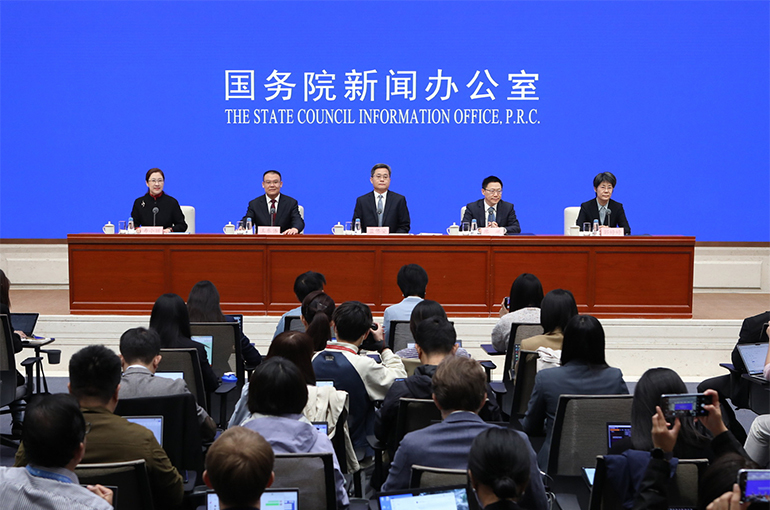 China to Raise Debt Ceiling, Recapitalize State Lenders to Boost Economic Growth
China to Raise Debt Ceiling, Recapitalize State Lenders to Boost Economic Growth(Yicai) Oct. 14 -- China plans to raise its debt ceiling to help local governments alleviate debt risks, recapitalize state banks, bolster the real estate sector, and aid low income groups, as part of a bold fiscal stimulus package designed to lift confidence and spur the economy.
The government will “significantly" step up borrowing to replace hidden debt and help localities mitigate debt risks, Finance Minister Lan Foan said at the press conference on Oct. 12.
It will also sell bonds to recapitalize major state-owned banks to enhance their lending capacity, use special bonds and tax policies to steady the real estate market, and enhance support for key groups to boost consumption, Lan told reporters.
The policies announced at the weekend are a strong signal that the central government is in control and has the ability to solve problems such as local debt and grassroots financial difficulties, fiscal and tax experts told Yicai. It also shows that more tools can be brought out at any time depending on the social and economic situation, they added.
These fiscal measures are in line with market expectations and are considered to be substantial, the experts noted. They follow a slew of other economic stimulus initiatives set out late last month by the People’s Bank of China and the National Development and Reform Commission.
The one-off increase in the debt ceiling is the single largest debt resolution effort made in recent years and exceeds what the market anticipated, said Ding Shuang, chief economist for China and North Asia at Standard Chartered Bank.
Some local governments have difficulty resolving hidden debts on their own, said Wen Laicheng, a professor at the Central University of Finance and Economics, so the finance ministry’s plan for a higher debt ceiling and the replacement of such debt by government bonds will ease the burden on local financing platforms and reduce the risk of defaults and regional financial instability.
Details of the higher borrowing will be disclosed at a meeting of the National People's Congress later this month. It is expected that the hike will exceed last year’s CNY2.2 trillion (USD310.9 billion) debt limit, and will not be less than CNY1 trillion, according to Ding.
The ministry will use the proceeds of the sale of special bonds to buy existing properties for use as affordable homes, it said. It is also studying the value-added tax and land VAT policies that are related to the definition and treatment of ordinary and non-ordinary residential properties. Further efforts will be made to support the proper sector’s stable and healthy development, including tax policy changes, the ministry added.
The use of special bonds to support land reserves and apartment purchases for affordable housing, expands the scope of these bonds and is an important manifestation of fiscal support for the real estate market, said Luo Zhiheng, chief economist at Yuekai Securities. This will help improve the cash flow of property developers and mitigates their liquidity risks, he added.
Future preferential VAT policies should ensure unified treatment for both ordinary and non-ordinary residential properties, either taxing them both as ordinary residences or granting both tax exemptions, suggested Tian Zhiwei, deputy dean of the Institute of Public Policy and Governance of Shanghai University of Finance and Economics.
Banks used to supplement their core tier-one capital from their profits, but these have been squeezed in recent years, experts told Yicai. So the ministry is stepping in and will issue special treasury bonds to supplement banks’ core tier-one capital. The amount to be issued has not been announced yet, but some experts see it at around CNY1 trillion (USD141.3 billion).
Editor: Kim Taylor